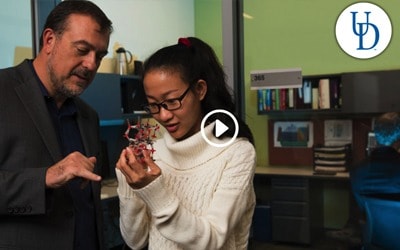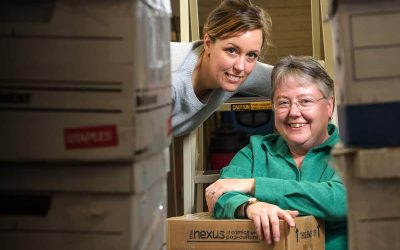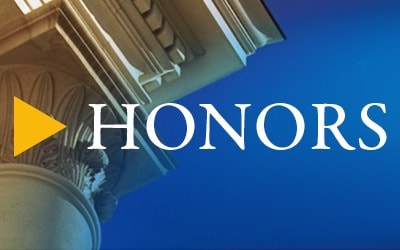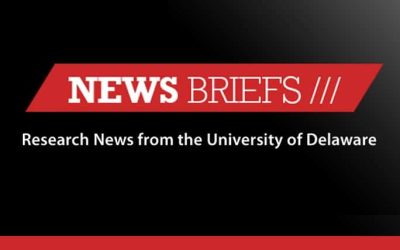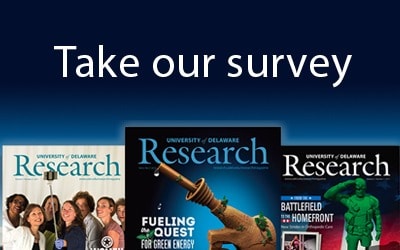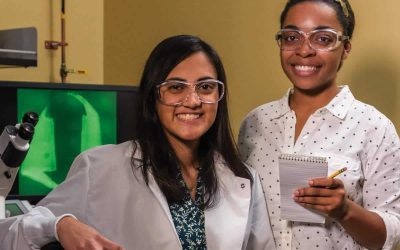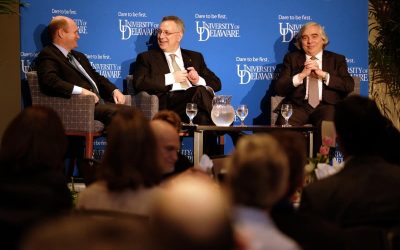

ABOUT THE AUTHOR: CHRISTINE LEIGH HEYRMAN
Christine Leigh Heyrman, the Robert W. and Shirley P. Grimble Professor of American History at UD, specializes in early American social and cultural history. In addition to American Apostles, she has written Commerce and Culture: The Maritime Communities of Colonial Massachusetts, 1690–1750 and Southern Cross: The Beginnings of the Bible Belt, winner of the Bancroft Prize. She received her B.A. from Macalester College and her Ph.D. from Yale.

“He called me in his best John Wayne voice to tell me they were having ‘a little excitement’ there,” says Heyrman, the Robert W. and Shirley P. Grimble Professor of American History at the University of Delaware. “He had found a working phone in a nearby Chinese restaurant and told me he was OK. I never felt so thankful in my life.”
In the aftermath of the 9/11 attacks, in grieving the thousands of lives taken and families forever changed, Heyrman also became increasingly concerned by the outpouring of hate toward Muslims and their faith.
“I saw it as a betrayal of the principles of this country,” she says.
That’s when Heyrman resolved to uncover the origins of American attitudes toward the Middle East. The 15-year journey took her to libraries in New England to Syria, Turkey, Egypt and Lebanon. The result is the much-lauded book American Apostles: When Evangelicals Entered the World of Islam.
An expert in American history from European settlement to the Civil War, Heyrman says she had a pretty good idea where to begin—“by looking at religious folks.” She found them in New England, in the detailed diaries written in the 1820s by the first American missionaries to the Middle East. Levi Parsons and Pliny Fisk journeyed to the Levant, an arc of land along the eastern Mediterranean, to found the Palestine mission, followed a few years later by Jonas King.
“They were country boys who had wide-eyed, idealistic expectations to convert this stronghold of Islam to true Christianity,” Heyrman says.
Although their crusade failed, Heyrman says the weekly reports they mailed home, altered where necessary by pious editors, were “treated as gospel” and became “the fodder for the dreams and fantasies” of Americans in this age before photography. Readers were enthralled by such wonders as Mount Lebanon and the famous cedars at its base—the largest 40 feet around—and how Arab sheikhs greeted male friends by grasping hands, then “put their foreheads together and smacked their lips but without bringing their faces into contact.”
These young missionaries didn’t preach to large crowds or set up schools. Their chief role was to travel and gather information. But acquiring all of this knowledge had unintended consequences.
“Today, people have the idea that evangelicals are far more likely to have a negative view of Islam,” Heyrman says. “While that’s certainly true at the outset for these early missionaries, some ended up being more accepting of Islam.”
Just as these first missionaries expanded their views, Heyrman hopes the book will convey the importance of trying to understand other religious traditions.
In a private journal, Fisk chronicles his encounters with individual Muslims, lessons in Arabic and instruction in the Qur’an. He keeps noticing where Christianity and Islam are alike and develops an appreciation of Islam as a faith.
“He is fascinating in his ordinariness,” Heyrman says of Fisk. “Here’s this Yankee from a poor farming family, previously committed to the evangelical cause. Watching him change was intriguing to me because it was so unexpected.”
King, however, is the militant crusader who finds “inspiration in his embattled encounters with Muslims to endow his kind of Christianity with an indisputable purchase on masculinity.”
“Fisk is a real seeker of other faiths, and you see the possibility of his being an honest broker,” she says. “Conversely, King wants to use the whole Middle East to suit his ambitions—plenty of people are like that today. We need to be more like Fisk and less like King who sees the Middle East as an idealogical opportunity.”
Earlier this year, the Society of American Historians awarded American Apostles the 2016 Francis Parkman Prize. It is presented annually to a nonfiction book that is distinguished by its literary merit and makes an important contribution to the history of the United States.
THE MISSIONARIES
Three young men from Massachusetts—Pliny Fisk, Levi Parsons and Jonas King—set out to convert Muslims to Christianity as the founding members of the Palestine mission in the 1820s. They were among the first Americans ever to travel extensively in the Middle East, serving as the eyes and ears of a fledgling nation. Their reports, often published as serials in the hundreds of newspapers and magazines of the day, played a crucial role in shaping Americans’ understanding of the Muslim world. Images courtesy of California Digital Library (Fisk); Middlebury College Special Collections & Archives (Parsons); and Princeton Theological Seminary Library (King)

MORE STORIES
Energy IQ
Put your Energy IQ to the test, and let’s see if you are an energy guru or a fossil fool.
Catalysis Center for Energy Innovation
Cool video highlights CCEI’s mission of turning cornstalks and wood chips into fuels, electricity and chemicals.
Scanlon papers now part of disaster resource collection
T. Joseph Scanlon, a respected journalism professor in Canada, had a long-time relationship with the University of Delaware’s Disaster Research Center, which is now the repository of his over 70,000-piece collection.
Honors
The UD community celebrates its first Gates Cambridge Scholar, two new fellows in the National Academy of Inventors, and the first woman to receive the Soil Science Society of America’s Kirkham Soil Physics Award.
News briefs
A humanoid robot joins the pediatric rehab team, a new UD study suggests online shopping may not be as “green” as we thought, a professor aims to improve student experiences in global health, and summer research all-stars take the field.
Keeping a killer flu in check
Who do you call when bird flu comes knocking? UD’s Avian Biosciences Center is working to contain the threat of bird flu—locally and globally.
Research Magazine Survey
We value your opinion. To show you how much, we will award a $100 Barnes & Noble gift card to three people who complete our survey. To be entered in this random drawing, please complete the survey by Nov. 1, 2016.
What science writing can teach us
Journalist, author and UD’s Distinguished Writer in Residence Mark Bowden shares lessons he learned as a science writer and recent samples of his students’ work.
New Train Station Project on Track for STAR Campus
An upgraded transportation hub in Newark will bring new riders and serve as an anchor for UD’s 272-acre Science, Technology and Advanced Research (STAR) Campus.
A trusted partner when the world turns upside down
Decisions made in times of disaster can be the difference between life and death, restoration and ruin. UD’s Disaster Research Center offers field-tested methods to strengthen recovery efforts.
Ch-Ch-Ch-Changes…
With significant change all around us, Delaware’s leaders—including the University of Delaware—are working to turn adversity into new opportunity.
Fueling the quest for green energy
Turning cornstalks and wood chips into renewable energy and valuable chemicals isn’t easy, but it is a promising focus of research at the Catalysis Center for Energy Innovation.




